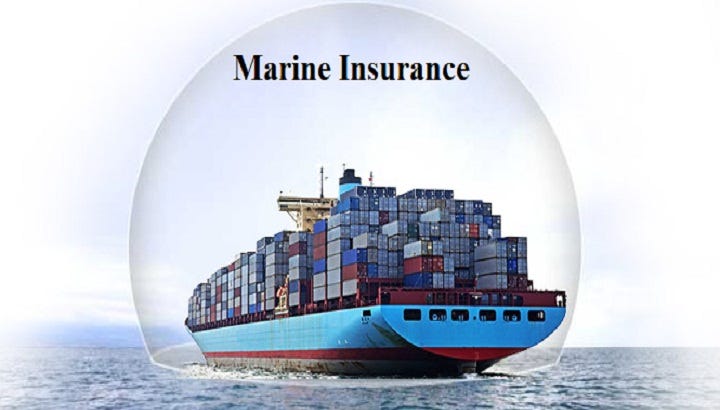Understanding the Particular Average Clause in Marine Cargo Insurance: Essential Information
While transporting goods across water boundaries, marine cargo insurance is essential for protecting goods during transit, safeguarding against potential risks such as damage or loss. Within this insurance framework, the Particular Average Clause holds significant importance. This clause outlines specific conditions under which losses are covered, providing clarity on the extent of insurance coverage for various scenarios.
For both marine insurers and policyholders, it is essential to understand the particular average clause. It will help define the scope of protection and mitigate financial risks associated with cargo transportation. This article serves as a comprehensive guide for providing clear insight and its aspects to facilitate an informed decision.
Average Clause in Marine Cargo Insurance
The Average Clause in marine cargo insurance is a fundamental aspect of insurance policies that specifically deal with how losses are calculated and compensated when cargo is damaged or lost during transit by sea. It primarily determines the extent to which the insurance policy will cover the loss incurred by the cargo owner or the insured party.
The insurer assesses the extent of the damage or loss and applies the Average Clause to determine the proportion of the loss that the marine cargo policy will cover. This calculation takes into account various factors, including the value of the cargo, the extent of the damage, and the terms specified in the insurance contract. Always remember that it is beneficial to get a cargo insurance policy from popular brands like Tata AIG for quality and timely services.
There are typically two types of Average Clauses that may be included in marine cargo insurance policies: the Particular Average Clause and the General Average Clause. A particular average clause in marine insurance is as detailed below:
Particular Average Clause in Marine Cargo Insurance Policy
A particular average clause covers the loss or damage caused to cargo during transit due to a particular uncertain event. When a loss is caused by a specific peril or such risk as covered under an insurance policy, the insurer pays off or indemnifies the insured party for the actual loss suffered. This is subject to the terms and conditions of the insurance policy.
In the Particular Average Clause, the amount of compensation to be made is the actual value of the damaged or lost cargo, less the deducted salvage amount, if any. This ensures that the insured party receives financial protection for the specific losses incurred during the voyage.
What is Covered Under the Particular Average Clause of Marine Cargo Insurance?
- The Average Clause in Marine Cargo Insurance addresses partial losses or damage to cargo during sea transit.
- It covers specific risks or perils outlined in the insurance policy, such as accidents, weather conditions, collisions, and maritime hazards.
- Compensation is based on the extent of damage to the cargo and its value. The insurer compensates the insured for the actual loss incurred due to covered risks.
- Deductibles or exclusions may apply based on the terms and conditions of the insurance policy.
Example of the Particular Average in Marine Insurance
Scenario:
Suppose a shipment of electronics goods is being transported by sea from India to the United Kingdom. During the voyage, the cargo ship encounters a severe storm, resulting in some of the cargo containers being damaged by water ingress.
Let’s say the total value of the damaged goods is ₹ 100,000. After deducting the salvage value of ₹ 10,000, the actual loss incurred by the insured party is determined to be ₹ 90,000.
As per Particular Average Clause:
Under the Particular Average Clause of the ocean marine insurance policy, the insurer assesses the extent of the damage to the affected containers. According to the policy’s terms, the insurer will compensate the insured party for the actual loss suffered, which amounts to ₹ 90,000.
Conclusion
Knowing about the Particular Average Clause in Marine Cargo Insurance is crucial for both insurers and policyholders. This clause delineates the conditions under which losses are covered, providing clarity on the extent of insurance coverage for various scenarios. By comprehending the intricacies of this particular average clause, the insured can effectively mitigate financial risks associated with cargo transportation and make informed decisions regarding insurance protection.
Frequently Asked Questions
- Are there any exclusions to coverage under the Particular Average Clause?
Exclusions may apply based on the terms and conditions of the insurance policy. It’s essential to review the policy document for details on exclusions.
- Can I choose which type of Average Clause to include in my marine cargo insurance policy?
Yes, you can choose between the Particular Average Clause and the General Average Clause based on your specific insurance needs and requirements.




